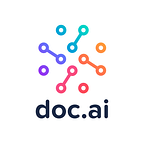Our Newest Data Trial to Predict the Optimal Supplements for Crohn’s Disease and Ulcerative Colitis is Live!
We have launched our newest data trial “Can Artificial Intelligence Predict the Optimal Supplements for Crohn’s Disease and Ulcerative Colitis?” in order to build a predictive model that could help define which supplements are most effective for IBD for each participant who is contributing with his or her real-world data.
We collaborated on this project with Sean Ahrens, a patient advocate and founder of Crohnology.com: a network for patients with Crohn’s Disease and Ulcerative Colitis. Sean is also an advisor at doc.ai.
uBiome, the leader in microbiomics, is also collaborating by providing all participants with free gut microbiome test kits.
The principal investigator of the data trial is Dr. Shekhar Challa, MD, President of Kansas Medical Clinic PA. Dr. Challa is Board Certified in Gastroenterology and in Internal Medicine and has been the principal investigator for 17 clinical research trials. Moreover, Dr. Challa is an award-winning author and has written numerous prominent books including Probiotics for Dummies, Winning the Hepatitis C Battle, and Spurn the Burn — How to Beat the Heat of Acid Reflux, among others.
Why is this Data Trial Important for Medical Research?
According to The Centers for Disease Control and Prevention (CDC), more than 3 million people in the U.S. are suffering from IBD (Inflammatory Bowel Disease), a chronic disease of the gastrointestinal tract, that occurs due to an abnormal response of the body’s immune system.
The most common types of IBD are Crohn’s Disease and Ulcerative Colitis. Each type shares some similarities, but they are unique as well. IBD treatment can involve medications and/or surgery, but dietary changes and supplements also play an important role.
One of the main challenges of healthcare is that “one size doesn’t fit all.” People take supplements without a clear understanding of how they impact their health and how different supplements interact with each other.
We Use Artificial Intelligence to Turn Data into Knowledge
We want to learn if AI (Artificial Intelligence) can determine which supplements are optimal depending on individual factors such as the phenome (age, sex, BMI), physiome (physical activity), exposome (environmental exposures and location), and the microbiome (gut microbes).
Participants will receive uBiome gut microbiome test kits 4 weeks after their active participation of the data trial to learn about their gut flora and will use the doc.ai app to daily track their supplements as well as symptoms.
By collecting data points around the disease, we want to study the relationship between supplements, symptoms, gut microbiome, and other “omics” such as the environment or physical activity through the application of artificial intelligence technology on the data. Likewise, common patterns among those correlations can be identified, and deeper insights can be gained on the disease.
A New Way of Conducting Medical Research
The principal investigator for this study, Dr. Shekhar Challa, is a gastroenterologist at the Kansas Medical Center.
Dr. Challa said,”I am convinced that Artificial Intelligence (AI) is the next frontier in helping us open new doors as to how we look at treating IBD. I am proud to be part of the doc.ai team to explore the role of supplements in IBD.”
At doc.ai we have built a new way of conducting medical research. Participants share their structured and real world data with the doc.ai platform which builds a more precise picture of their health while personally owning the data that they share. With this collective effort, they help build the future of data collection while contributing to the development of more precise machine learning models and thereby help accelerate medical research.
Here is an interview with Sean about the data trial, and here you can read our latest press release with uBiome.
Also, we encourage you to check out the featured story at Forbes about our first data trial on allergies.
If you are inspired to conduct your own medical research with us, shoot us an email at [email protected]. We’re looking forward to collaborating with you!
Originally published at doc.ai.
